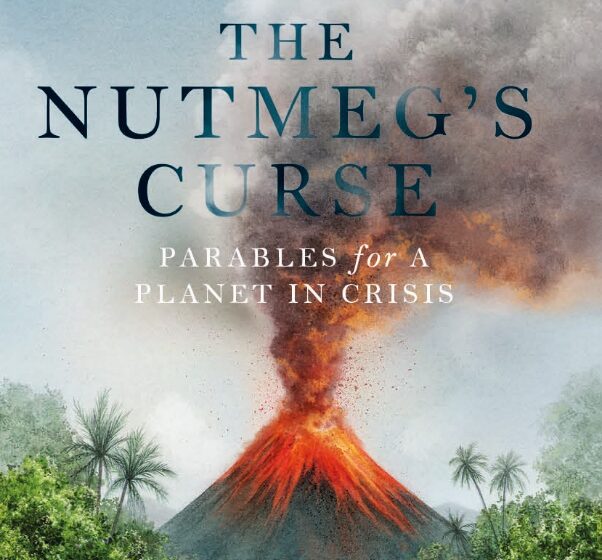The Nutmeg’s Curse traces the impact of colonialism through the spice

Team L&M
Noted author Amitav Ghosh’s new book The Nutmeg’s Curse: Parables for a Planet in Crisis, released yesterday talks about how colonialism has impacted the world, and still does, through the story of the nutmeg.
The author discusses humble nutmeg’s (Nutmeg is called Jaiphal in India) journey from its native Banda islands, the volcanic islands located in the east of Java, to its cultivation in various regions across the globe.
Before the 18th century, nutmeg was only grown in Banda, and was an expensive spice. Nutmeg then was worth more by weight than gold; you could buy a house with just a handful of these fruits. Also, Nutmeg’s essential oils have bactericidal, fungicidal and insecticidal properties and hence it was widely used for food preservation as also for treatment of diseases, including the bubonic plague. No wonder, Europaens wanted to gain control over not just Nutmeg but the whole of spice trade. They made a number of attempts at this as well.
Things took a 180 degree turn as European traders turned rulers. For, soon after it was Banda islands people who had to pay a high price to access this precious fruit.
How exactly did things come to such a pass? What was the role of colonial rulers in turning the tide? And how does all this affect the environment, impact the climate change?
If you want to know all this, pick up Ghosh’s book. The book sheds light on a widespread colonial mindset of exploitation of human life and the environment, which is present even today.
In the book, the author argues that the nutmeg’s violent trajectory from its native islands reveals a wider colonial mindset which justifies the exploitation of human life and the natural environment, something which dominates geopolitics even today.
He opines that in the history of the nutmeg lies the path to our planetary crisis, twisting through the horrors of empire and racial capitalism. Through the book, Ghosh has brought to life the alternative visions of human flourishing in consonance with the rest of nature-and reminds us how great are the vested interests that obstruct them.
The solution to the present-day climate crisis lies in living in harmony with the Nature and all its elements, not in controlling them for the human use.
We must learn from the bloody fate of the Banda Islands otherwise we may be heading towards a global anthropogenic ecological catastrophe.


